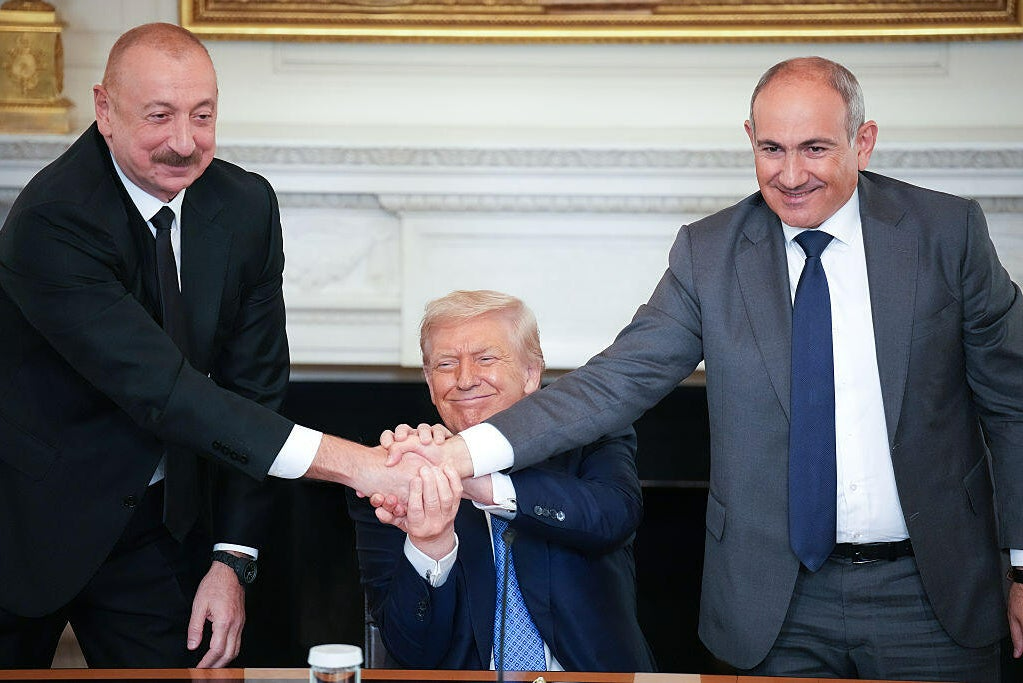In a doubtlessly transformative second for the South Caucasus, Armenia and Azerbaijan signed a U.S.-brokered peace settlement on August 8, 2025, on the White Home, ending a battle lingering for almost 35 years. The deal, facilitated by President Donald Trump, not solely charts a course towards normalized relations but additionally reconfigures strategic affect within the area.
A key element of the settlement is the creation of a transit hall connecting mainland Azerbaijan with its Nakhchivan exclave by way of Armenia — a longstanding diplomatic problem. Dubbed the “Trump Route for Worldwide Peace and Prosperity” (TRIPP), the hall grants the USA unique improvement and operational rights. U.S. officers describe the hall as a commercially viable initiative, with a number of firms already expressing curiosity.
The peace agreement grants the U.S. exclusive development rights over the corridor—operated under Armenian law and subleased to a consortium—which analysts say could “unlock the region” and catalyze Azerbaijan’s entry into the Abraham Accords, while diminishing traditional influence from Russia and Iran.
This settlement alerts a pointy geopolitical shift. Traditionally, Russia dominated peace negotiations within the area, however its affect has waned amid ongoing world tensions. Analysts view U.S. involvement by means of TRIPP as a deliberate recalibration of energy dynamics, providing a strategic edge to American engagement whereas diminishing Moscow’s regional sway.
In the course of the White Home ceremony, President Ilham Aliyev of Azerbaijan and Prime Minister Nikol Pashinyan of Armenia praised Trump’s mediation. Each leaders went as far as to recommend nominating Trump for a Nobel Peace Prize.
The present settlement lays the groundwork for totally normalized relations, together with enhanced cooperation in power, tech, commerce, and protection.


